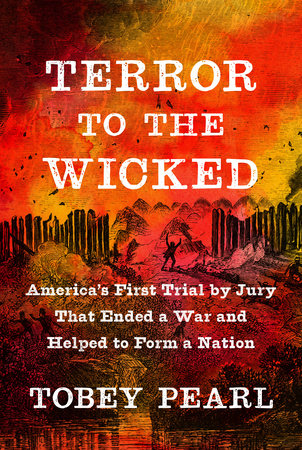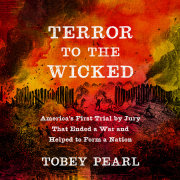1
Earthquakes and Omens
“They thought to avoyd ye pursute.”
—Plymouth Colony governor William Bradford Arthur Peach felt for his rapier. This weapon, his only material possession in the world, was a reassuring accessory on this journey in the peak of summer 1638. Everything else around him had deteriorated, but the metal blade remained sharp, cool, and clean. For several days, he and his companions, fellow indentured servants, had been traversing an unfamiliar forest with insufficient supplies. Now, the hellish forces of exposure and hunger wore on him and the three other men—and he had reason to fear that these men questioned his leadership.
The formidable stands of oak, maple, and pine trees obstructing his view of the sky were broken up by the wetlands of Misquamsqueece, north of present-day Seekonk, Massachusetts. They stopped in an eerie spot filled with curious markings—including a foreboding imprint forged into stone known as the “Devil’s Footprint.” Elongated and worn deep into the dark rock, it was simply an ancient indigenous corn mortar, though Peach had no way of knowing this. Peach and his companions may have overheard the similarly sinister name for the watery region, the “Devil’s Swamp.” To this day, the desolate wetlands provoke the local belief that the place itself could “foster pain and evil.”
The men’s choice to camp on the border between the Wampanoag and Narragansett territories provided an opportunity to avoid both tribes. If Peach and his companions had ventured farther east or west, they would have been confronted by indigenous men. Their location fell with precision on a natural border; six years later the spot would become the center of a large-scale land boundary dispute between the colonies.
Relentless mosquitoes and slow-moving dragonflies hinted at the proximity of swampy waterways. Peach must have wished he were back in the lush expanses of his native Ireland, however contested and bloodstained. As he rested his head on a bed of dried-out pitch pine needles, he could reflect on the surreal events that had brought him to this abysmal place.
Earlier in the summer, on June 1, 1638, nature itself had seemed to promise remarkable things to come. First, Peach noticed the ground in Plymouth Colony shaking under his feet with such ferocity that “with a report like continued thunder . . . chimnies were thrown down, and the pewter fell from the shelves.” In describing the trembling earth, some said “that the Holy Ghost did shake it in coming down on them.” The Providence patriarch Roger Williams described the accompanying din as a “kind of thunder.” That was just the earthquake itself. The aftershocks rumbled on and off throughout June, and then on the twenty-fifth of that month, in a crescendo of God’s mysterious works, the light drained from the moon, turning its eclipsed form from opalescent to the russet color of battle-dried blood that Peach knew well. The fantastic omens tantalized young adventurers looking for new opportunity.
The servitude contract Peach had entered into with the Plymouth powerbroker Edward Winslow two years before would end when he turned twenty-five, permitting him to live as he pleased from that point on. By 1638, Peach had two years to go: nothing in the grand scheme of things, but a lifetime to a restive youth. Breach of his servitude would trigger severe punishment if he were caught, but Peach never dwelled on consequences. After the panic-inducing lunar eclipse, he set out as if pulled away by unknowable forces or the nearby tides, leaving behind debts on top of his indenture contract.
Indentured servants had no right to leave the colony without expressly granted permission, and before fleeing Plymouth, Peach compounded his transgression by convincing three fellow servants to join him on his mad dash. Now, just a few days into their journey, the very presence of the companions by the campfire complicated matters for him. Reasons for impatience multiplied. So far, Peach had failed to provide much sustenance or even to navigate the woods properly. By the time they had camped in Misquamsqueece, he needed a way to prove himself a leader. A distant sound demanded attention. It was impossible to differentiate between predator and prey, at least until it—man or beast—moved closer. With daylight on them, Peach could have hunted for food, but for the moment he conserved his waning energy.
In addition to the earthquake and eclipse, a less celestial but equally moving circumstance had pushed Peach out of the settlement into this wilderness. He had a sweetheart, a servant in a different household in Plymouth. He found love when it seemed least possible, during a moment of epic despair when he had been consumed with his plight in life.
Peach had been living at the sprawling Careswell estate in Marshfield, Edward Winslow’s manor, on the outskirts of Plymouth Colony. Poor and landless, Peach had agreed to work for the high-ranking leader, who had served twice as governor in the colony. Peach’s placement with Winslow promised access to opportunity, but in practice the role did not suit him. Nor did the work. Peach hailed from a long-established family of adventurers and warriors; he wanted to own an estate, not serve one.
A few short years earlier, a manor like Careswell would have been largely unheard of in Plymouth. As the settlement transitioned from terrifying ordeal to the drudgery of subsistence farming, hunting, childrearing, and worship, the quiet life of most of the religiously devout Pilgrims settled into a quotidian existence—but for a few, life became grander. The clapboard facade at Careswell may have been unassuming, but the building, with views out to the ocean, rambled on well beyond the needs of any New England family. The expansive stretches of farmland included a lavish range of peas, wheat, and corn crops; Winslow had created a type of estate living that was entirely novel in the New World.
The ambitious settler had taken pains to show his status. Winslow came from a well-established family in England, part of the merchant class, and he was an “old-comer”—one of the first to settle the area. He had arrived on the
Mayflower. Careswell would have marked him as a member of the landed gentry class, a term that had no real meaning in New England. Winslow could not have afforded such an estate in the Old World, but he had taken a gamble coming to Plymouth and stood on the cusp of making a fortune.
The vast size of new estates such as Careswell could only be supported by an array of servants like Peach, purchased through indenture contracts. The Pequot War, which began in 1636, provided another labor source. Soon Plymouth’s masters would be challenged with the dilemma of whether or not to “buy” indigenous slaves, tribespeople who had been taken as prisoners of war in the fighting. The moral lines quickly blurred between indentured servants, prisoners of war, and those who were penned and awaiting sale. The distinctions among the three would only become clear a lifetime later, to the horror of mothers and fathers who had fallen into the most hopeless category, slavery, which was inheritable—their children and their children’s children doomed to the same fate.
As an indentured servant, Peach fit a clear role on Careswell, but property owners such as Winslow remained perplexed by tribesmen and -women. During Winslow’s early days in Plymouth Colony, he dismissed the idea that the indigenous people believed in God. Tribal spiritual leaders corrected his misperception, and he took quill to parchment to set the record straight: “Therein I erred, though we could then gather no better.” It meant something to Winslow to understand the beliefs of the indigenous people around him, particularly on this point. To a Puritan, a faithless soul would be met with confused disdain. A believer, on the other hand, even a non-Christian, could be humanized.
Just to the north, in present-day Boston, Massachusetts Bay Colony governor John Winthrop had no compunction regarding the issue of slavery. When he later wrote out his will, he allocated his estate in clear terms: “I give my son Adam my land called the Governor’s Garden . . . I give him also my Indians.” While Peach did not face the horrors of enslavement, the indignities of servitude plagued him. And the influx of Pequot slaves may have further roused his anger. Peach had served as a soldier in the Pequot War, likely engaged in armed fighting in 1637, just one year before his flight into the dark forests. Peach despised his enemy combatants and had no desire to work alongside them.
Plymouth bitterly disappointed Peach. While New England indenture contracts dating as late as 1634 promised, in bold hand, “one hundred acres of ground” in exchange for service, by 1636 Plymouth Colony restricted the acreage given in indenture contracts to a comparatively paltry five—and there was an easy way out for the government to leave the obligation unfulfilled. The colony declared that land would be available only to those subjectively determined to be “fit” to receive it. Soon after, Plymouth’s leaders further degraded prospects for indentured servants by stipulating that land given to indentured workers would come out of their masters’ acreage rather than from the colony. The bait-and-switch trapped Peach in what proved to be the latest dead end, inciting a dangerous state of rage. To make matters worse, as servants’ disenfranchisement increased, freemen grew wealthier and more powerful.
Arthur Peach faced the reality that, despite his newly lush surroundings with the Winslows, the “end-payments” for his servitude amounted to little more than “two suits, one for the Lord’s day and one for working days.” Just a few years later, the number of men willing to sign up for such servitude terms plummeted. Peach was part of the final large wave of servants helping to settle New England. It was precisely the year of his flight, 1638, in which the first generation of indenture contracts expired, with few takers to replace them.
Copyright © 2021 by Tobey Pearl. All rights reserved. No part of this excerpt may be reproduced or reprinted without permission in writing from the publisher.







